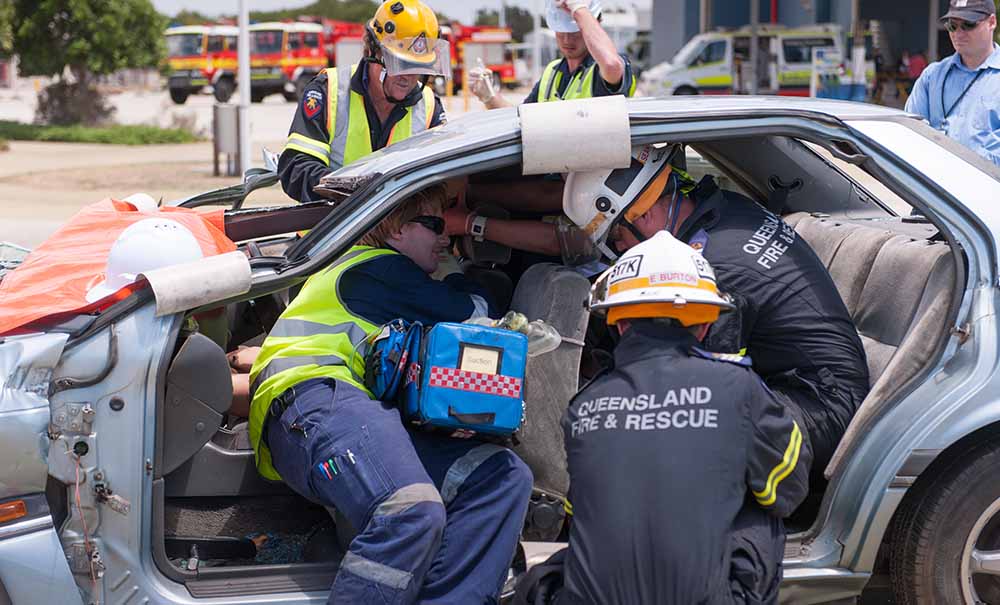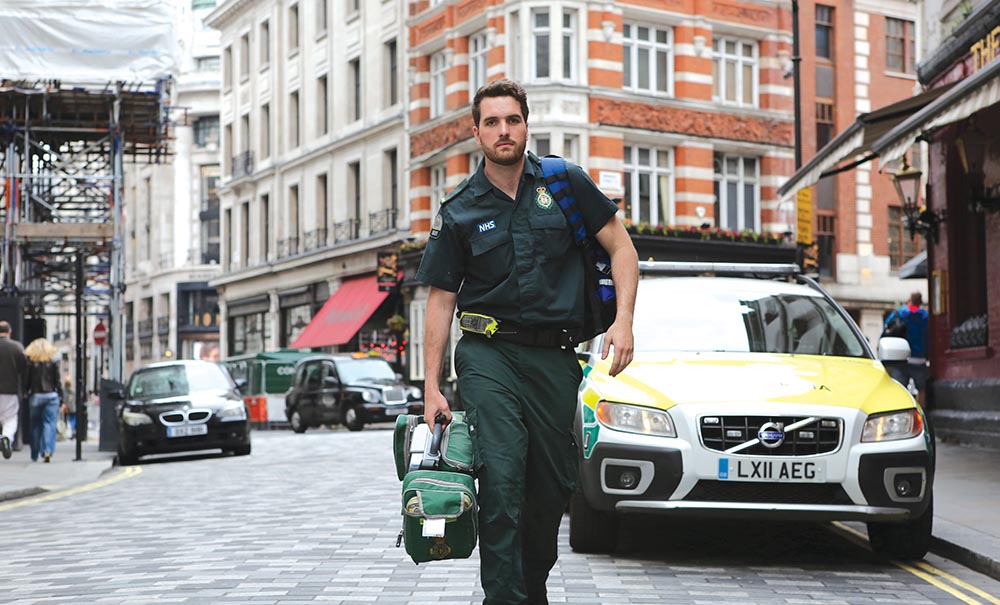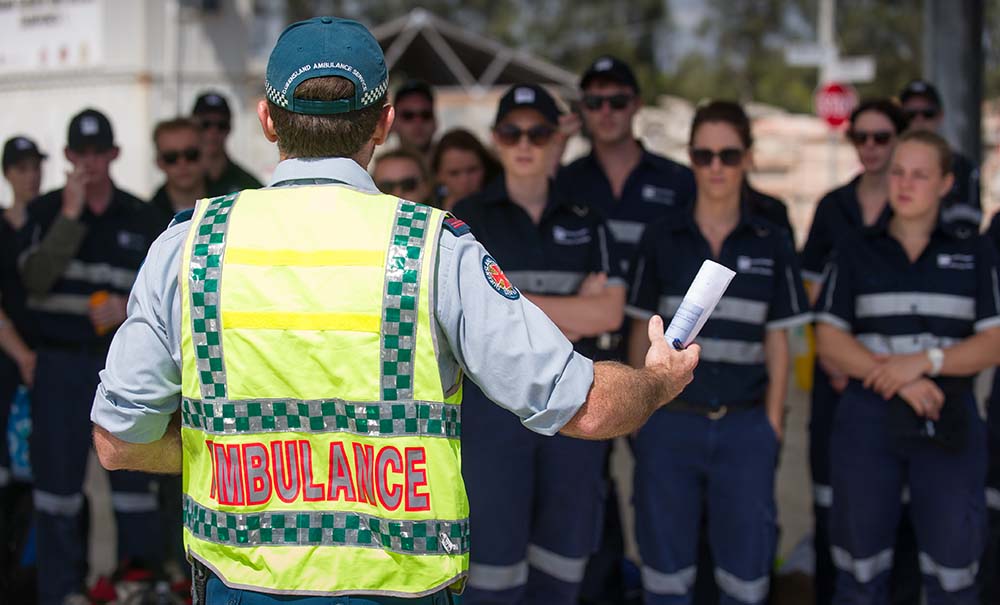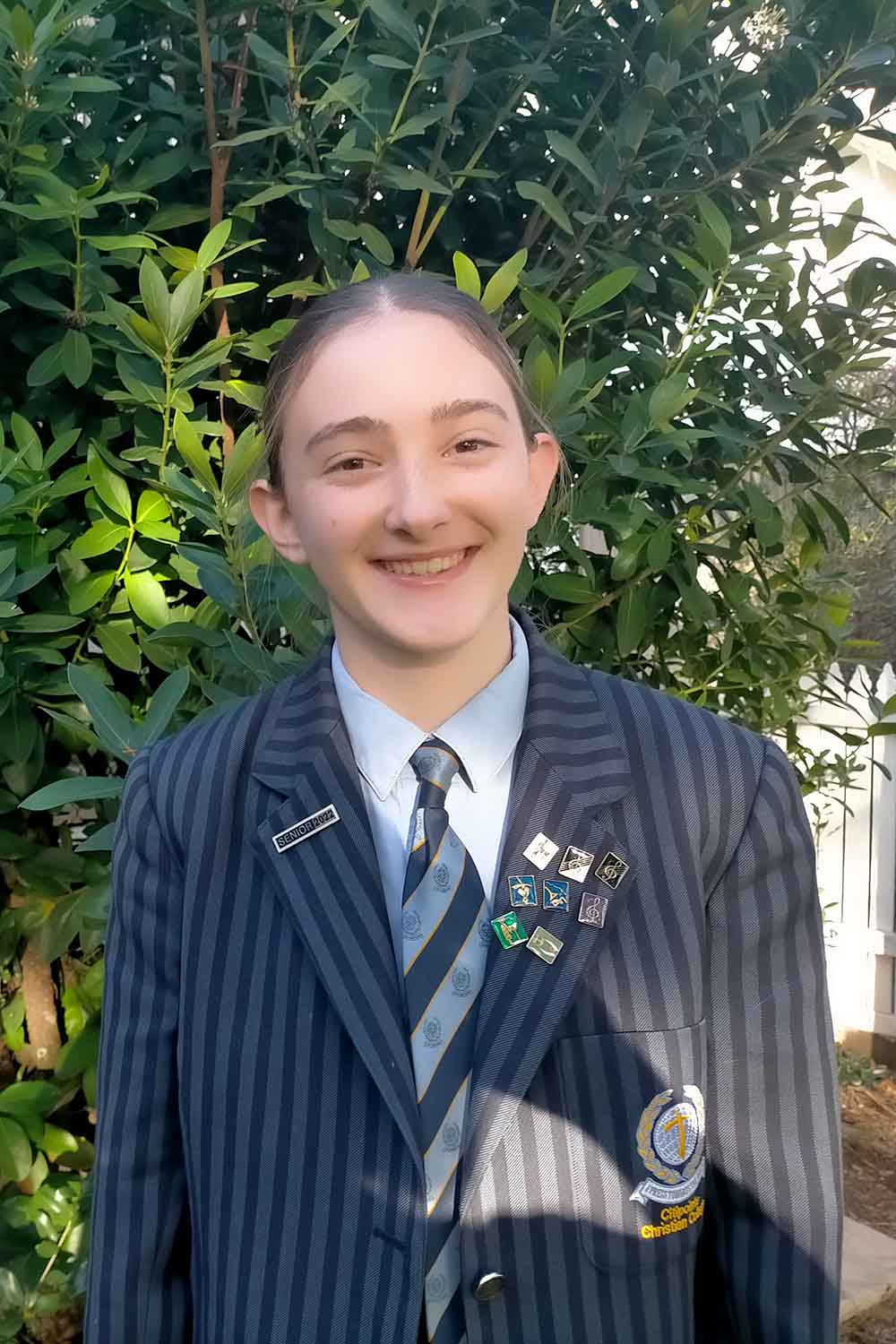
Remington Brough, 22 June, 2022
Current Year 12 student Kaitlyn Mayes is weighing up her uni options with the goal of becoming a paramedic. Kaitlyn put questions about her career options and studying paramedic science to a current paramedic science student Remington Brough.
What are your tips for studying paramedic science? What do you wish you knew going in?
Joining the QUT Student Paramedic Undergraduates (SPU) society is a great way to meet other students studying your degree as they organise events such as continuing professional development and trivia nights, balls, and networking opportunities.
I have also taken advantage of free support in the library at the Learning Hub where paramedic students in the second and third years volunteer their time to run guided study workshops, alongside opportunities to get more hands-on time with the paramedic equipment outside of class time with this student support. I have found these beneficial so I would recommend these to future students.
How does QUT help you start your career?
With a paramedic science degree, you will complete three six-week placements with the Queensland Ambulance Service (QAS). The first of these placements begins at the end of your first year of studies. I believe that having this placement so early into the degree is a great way to jump in and apply your skills and develop an understanding of how pre-hospital health care system works.
While you complete placements with QAS, the degree doesn’t just teach you how to be a QAS Paramedic so you can use your knowledge and apply it elsewhere. I’ve had opportunities within my degree where I was a patient in a simulated multicausality exercise with the Australian Defence Force, where I was transported and then treated in a large deployable field hospital. I have also been a patient in multiple scenarios to assist in the training of new Critical Care Paramedics in the QAS Critical Care Paramedic Program. In these opportunities you get to be at the receiving end of professional care and are useful learning opportunities.
I’ve also been involved in multiple experiences where I have worked alongside Queensland Fire and Rescue Firefighters, while being mentored by current senior QAS Paramedics, to manage simulated road crash scenarios.

One scenario that stands out involved a vehicle roll over with a patient still trapped in their seat. In this scenario I gained entry to the car and was initiating patient care upside down while working alongside firefighters to help extricate the mannequin safely from the vehicle. These experiences have been excellent in developing my leadership and confidence to advocate for patients in interdisciplinary settings.
At QUT there is also career direction and planning support, interview skills development, and resume writing assistance.
Link for fact checking:
Career services for current students
What’s your advice to students going on placement?
There are some out of pocket expenses associated with placements that are handy to know of in advance to help you budget for them. These include student paramedic uniforms, vaccinations and serologies, medical assessment, and a criminal history check. I also believe its beneficial if you can invest in your own stethoscope. Placement is full time hours so it’s challenging and not really advised to continue other employment during this time. If you can save up some money before going on placement this can take a lot of stress out of managing your finances during this time.
Placements are an excellent opportunity to learn and practice in a supported environment so don’t be afraid to set goals and communicate these to your paramedic mentors.
Will Australian graduates be accredited to work overseas?
Successfully completing the Bachelor of Paramedic Science at QUT allows you to apply to work abroad as a Paramedic. Since each countries health systems and their accreditation standards may be different from our own it’s difficult to say exactly what hoops you may be required to jump though to be able to work overseas as a Paramedic. I’ve heard that it is common for Australian Paramedics to work abroad in England and New Zealand for instance.

What are the options for work overseas as a paramedic – does QUT give any advice or help with that?
While at QUT I have received emails from my teaching team advertising overseas hiring and paramedic recruitment opportunities with the National Health Service in England and Acadian Ambulance Service in the United States. There are also opportunities to go overseas during your paramedic studies and the ability to apply for QUT bursaries to assist with expenses.
What other possible career paths are there? Say if you worked as a paramedic and wanted to change after 10 years.
If you wanted to further your career as a Paramedic, you can complete extra studies and apply to work as a Critical or Intensive Care Paramedic. Essentially, in this role, you’ll have a greater scope of practice being able to administer more medications and perform more advanced clinical procedures. If you have more of an interest in the low acuity (non-urgent) cases, you could work with the Queensland Ambulance Service (QAS) in their Low Acuity Response Unit for instance. There are also opportunities in the private sector such as working on mine or construction sites, film and television sets, and as a sports and event medic.
With your skills as a Paramedic, you could set up your own company or work with an existing one to deliver accredited first aid and CPR training to members of community. Further study could also lead to careers in emergency and disaster management or public health.
How do people train to be an advanced care paramedic?
Completing a bachelor's degree in paramedic science or paramedicine in Australia allows you to apply for professional registration with the Paramedicine Board of Australia. QAS’s minimum level of qualified paramedic is at the Advanced Care Paramedic. Depending on where you work your title, and the organisation rank structure, may be different.
Link for fact checking:
Queensland Ambulance Service paramedic qualifications

What are the job prospects like – I’ve heard it is difficult to get a job with QAS upon graduation?
I’ve also heard that it is competitive to get a graduate paramedic position with QAS, however if you are willing to work outside of major metropolitan centres this could increase your employability. I did hear on the news just recently that the New South Wales government announced funding to recruit 1858 extra paramedics and open 30 more ambulance stations across the state. Applying to work for interstate ambulance services, as well as within, the private sector will increase your opportunities for employment.
Links for fact checking:
Read about funding for NSW paramedics and Boosting jobs for paramedics.

